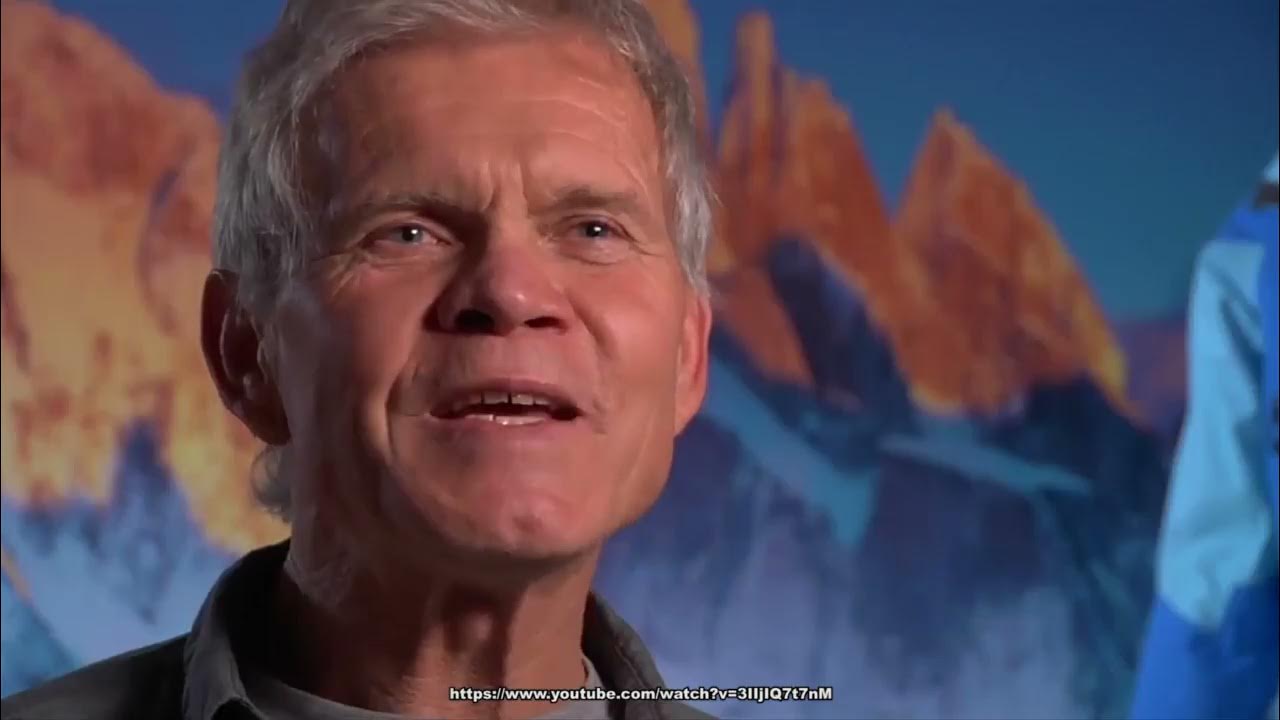Geography & Google Earth
Summary
TLDRIn this video, oceanographer Sylvia Earle, environmentalist Rick Ridgeway, and adventurer Olly Hicks share how geography plays a crucial role in their lives and professions. Earle discusses her passion for maps and how geography helps her explore the underwater world, while Ridgeway emphasizes its importance for his mountain climbing endeavors. Hicks highlights how geography is vital for his global rowing expeditions. They all underscore geography's essential role in connecting everything on the planet, making it fundamental to understanding history, physics, and the natural world.
Takeaways
- 🌍 Geography is an essential tool for understanding one's place on the planet, as emphasized by Sylvia Earle, Rick Ridgeway, and Olly Hicks.
- 🗺️ Sylvia Earle, an oceanographer, uses geography daily to navigate and understand the world's terrain and nature.
- ⛰️ Rick Ridgeway, a mountain climber and environmental program leader at Patagonia, values geography for its role in locating and climbing mountains.
- 🚣 Olly Hicks, an ocean-rower and adventurer, relies on geography for navigation in his explorations and travels across the ocean.
- 📚 Geography connects various fields of knowledge like history and physics, making it fundamental for learning and understanding the world.
- 🔍 Sylvia Earle loves maps and highlights the importance of digital tools like electronic maps for exploring and understanding global and local geographies.
- 🌐 Geography gives a sense of place, helping people know not only their location but also the location of other places on Earth.
- 👧 Rick Ridgeway began his passion for geography and mountain climbing at a young age, finding it crucial for understanding and navigating mountainous terrains.
- 🌊 Sylvia Earle has explored underwater environments and emphasizes the accessibility of such experiences through digital platforms.
- 🧭 Olly Hicks uses geography and mapping extensively in his expeditions, underscoring its importance in planning and executing long-distance ocean rowing adventures.
Q & A
Who is Sylvia Earle and what is her profession?
-Sylvia Earle is an oceanographer and explorer-in-residence at National Geographic.
How does Rick Ridgeway describe the importance of geography in his life?
-Rick Ridgeway emphasizes that geography has been important to him as a mountain climber and sailor. He also runs environmental programs at Patagonia, an outdoor clothing company.
What role does geography play in Olly Hicks' work?
-Geography is crucial for Olly Hicks as he needs it to navigate and explore during his expeditions, especially when rowing across oceans and traveling from one country to another.
How does Sylvia Earle describe the connection between geography and understanding the planet?
-Sylvia Earle explains that geography helps people understand their place on the planet by knowing the terrain, nature, and where everything else on Earth is.
What upcoming expedition is Olly Hicks preparing for, and why is geography important for it?
-Olly Hicks is preparing to row around the world for 18 months, and geography is essential for planning his route and navigating across oceans.
According to Rick Ridgeway, why is geography essential for learning about mountains and climbing them?
-Rick Ridgeway states that geography is necessary to know where mountains are, their appearance, and how to climb them, which has been critical for his career as a mountain climber.
Why does Olly Hicks believe geography is important for children?
-Olly Hicks believes geography is important for children because it connects various subjects like history and physics and ties knowledge about the world together.
How has Sylvia Earle’s love for maps influenced her career?
-Sylvia Earle’s love for maps has influenced her career by fueling her passion for exploring and understanding the world, from zooming in on specific locations to exploring underwater environments.
How does modern technology enhance geographic exploration, according to Sylvia Earle?
-Sylvia Earle mentions that with modern technology, such as cell phones and laptops, anyone can explore the world, from viewing maps to virtually diving without getting wet.
What personal experience did Rick Ridgeway have with geography as a young boy?
-Rick Ridgeway shares that when he was 14, he aspired to be a mountain climber, and geography taught him about mountains' locations and heights, shaping his future as a climber.
Outlines

Dieser Bereich ist nur für Premium-Benutzer verfügbar. Bitte führen Sie ein Upgrade durch, um auf diesen Abschnitt zuzugreifen.
Upgrade durchführenMindmap

Dieser Bereich ist nur für Premium-Benutzer verfügbar. Bitte führen Sie ein Upgrade durch, um auf diesen Abschnitt zuzugreifen.
Upgrade durchführenKeywords

Dieser Bereich ist nur für Premium-Benutzer verfügbar. Bitte führen Sie ein Upgrade durch, um auf diesen Abschnitt zuzugreifen.
Upgrade durchführenHighlights

Dieser Bereich ist nur für Premium-Benutzer verfügbar. Bitte führen Sie ein Upgrade durch, um auf diesen Abschnitt zuzugreifen.
Upgrade durchführenTranscripts

Dieser Bereich ist nur für Premium-Benutzer verfügbar. Bitte führen Sie ein Upgrade durch, um auf diesen Abschnitt zuzugreifen.
Upgrade durchführenWeitere ähnliche Videos ansehen

Video Riset 6

How to speak fluently in any language. 1 Simple trick from polyglot | WORKS 100%

RE-CREATE YOURSELF with these PERSONAL BRANDING Tips/ Change The Way People See You

Geopolitics of South America

A scientific approach to a meaningful life | Joshua Hicks | TEDxTAMU

Old geographies, new orders -- China, India and the future of Asia: Rush Doshi at TEDxFulbright
5.0 / 5 (0 votes)
